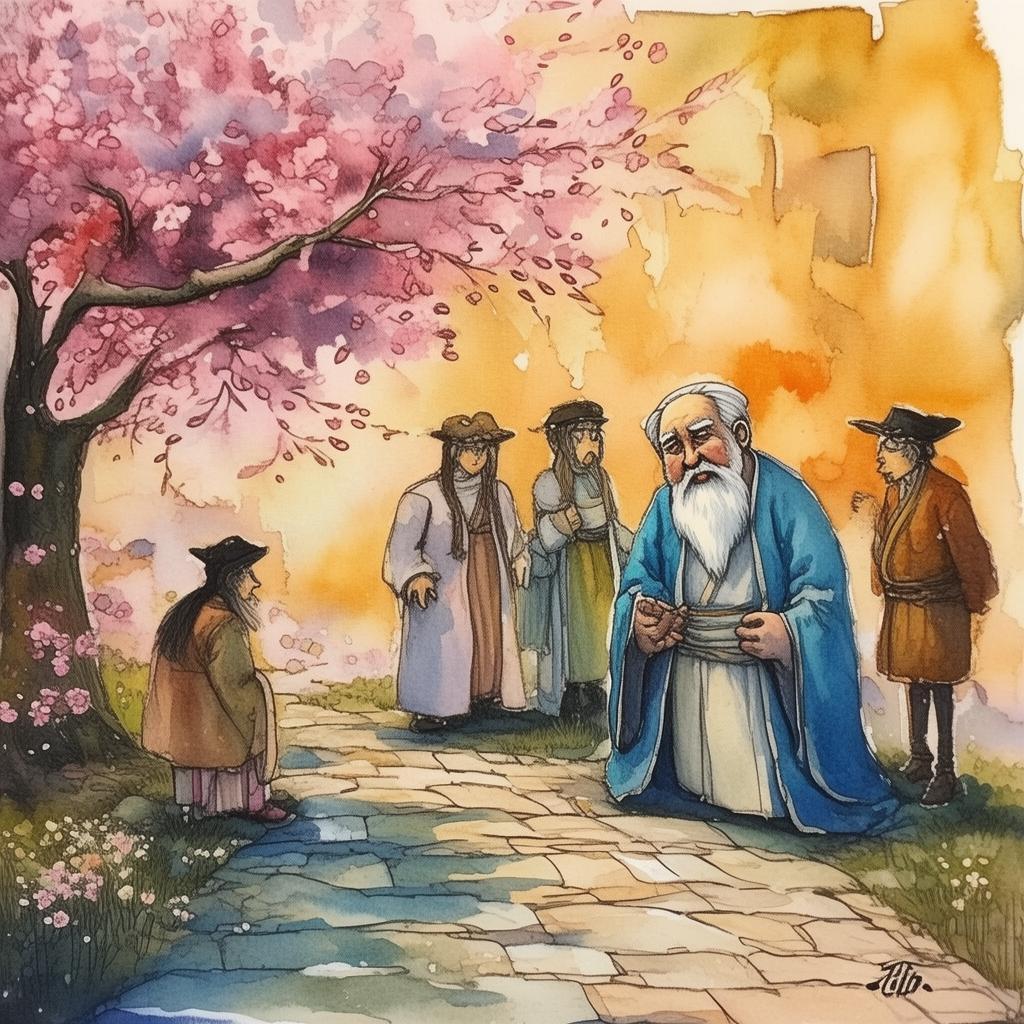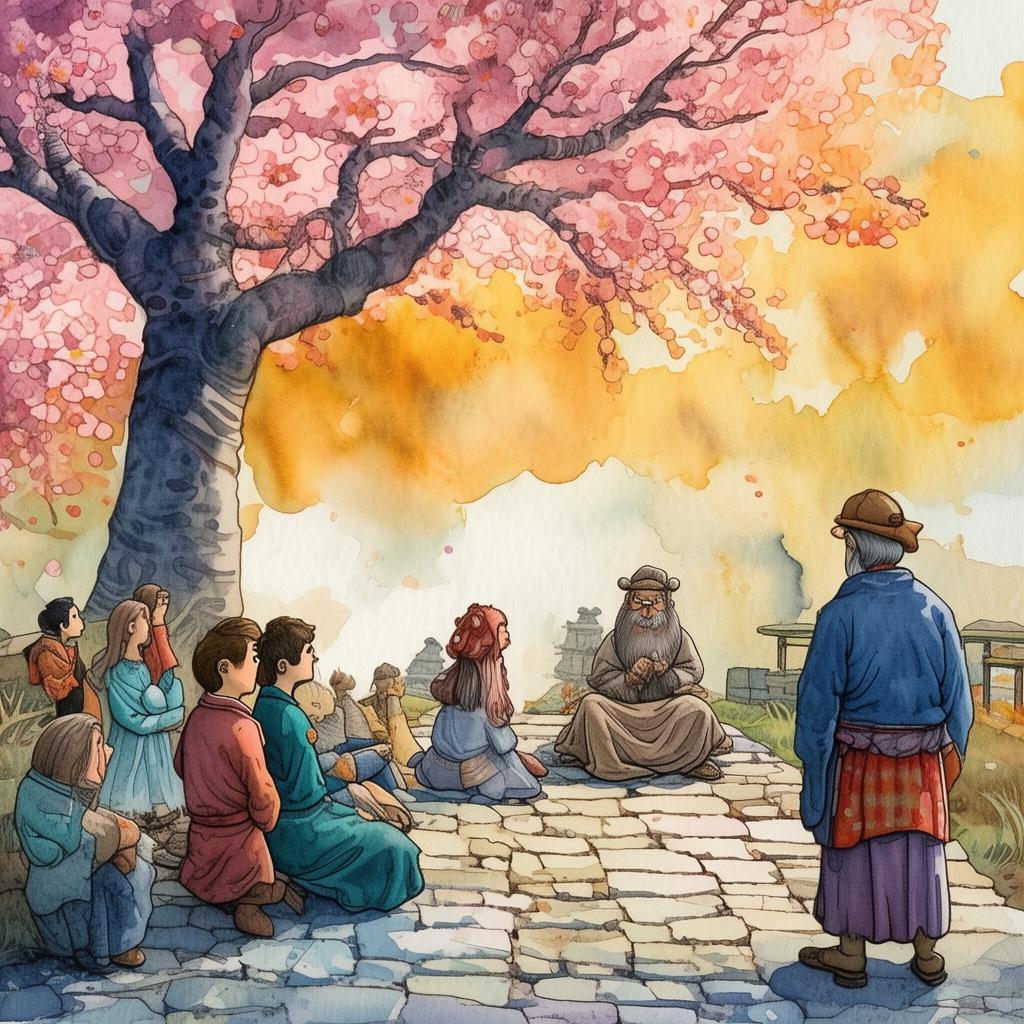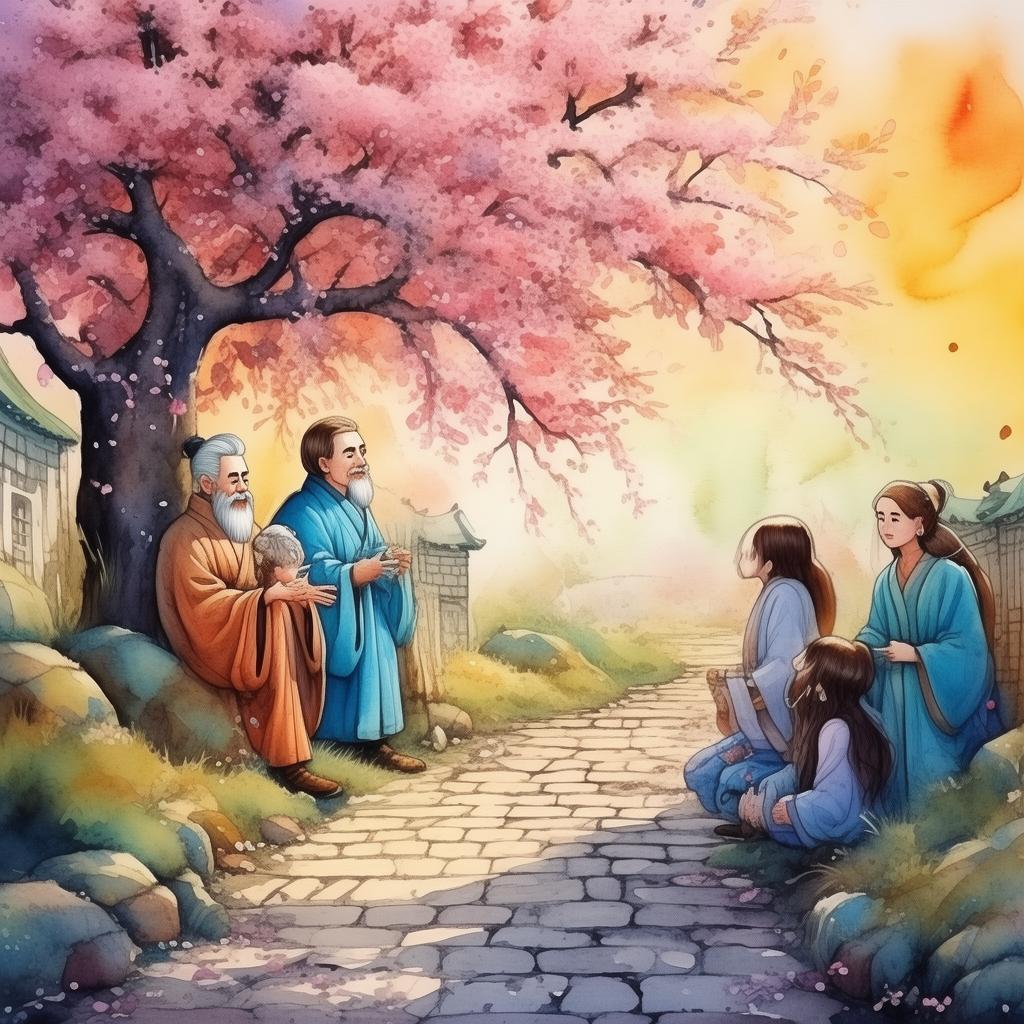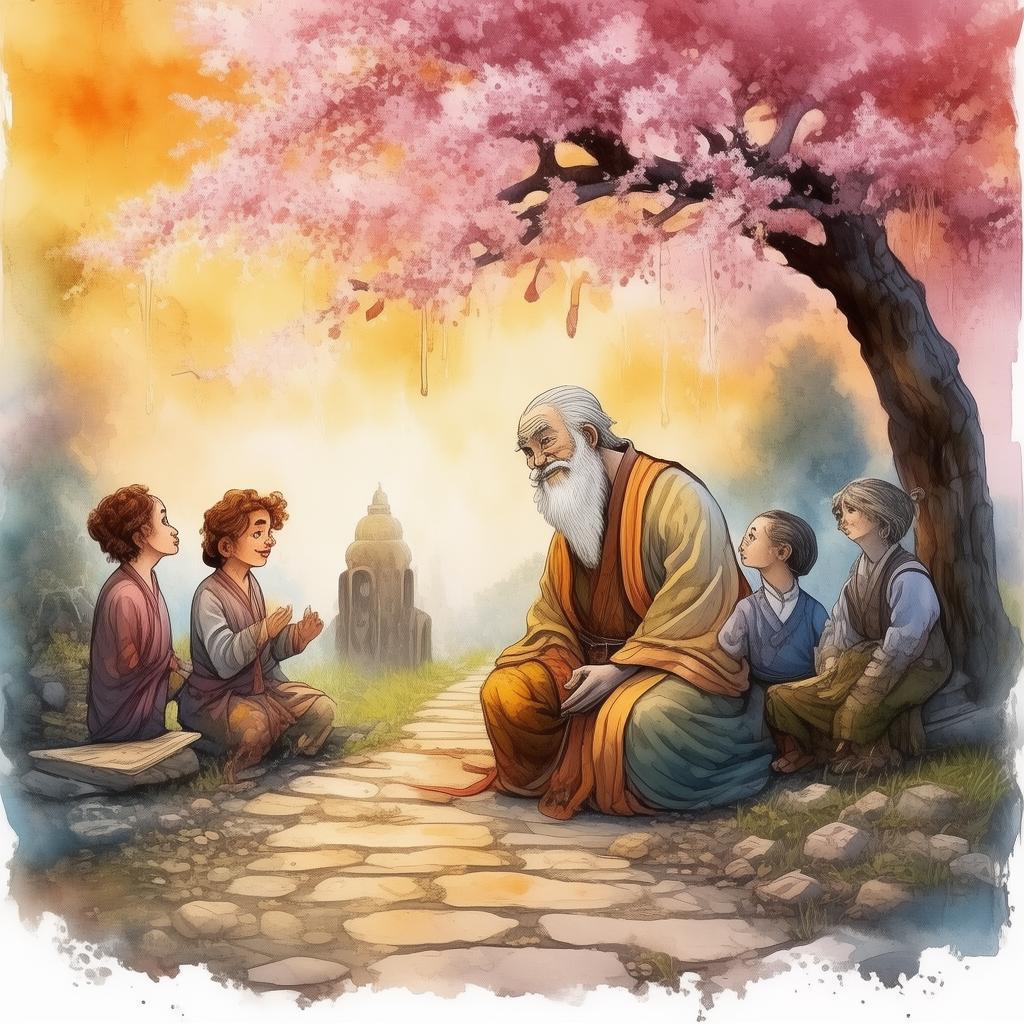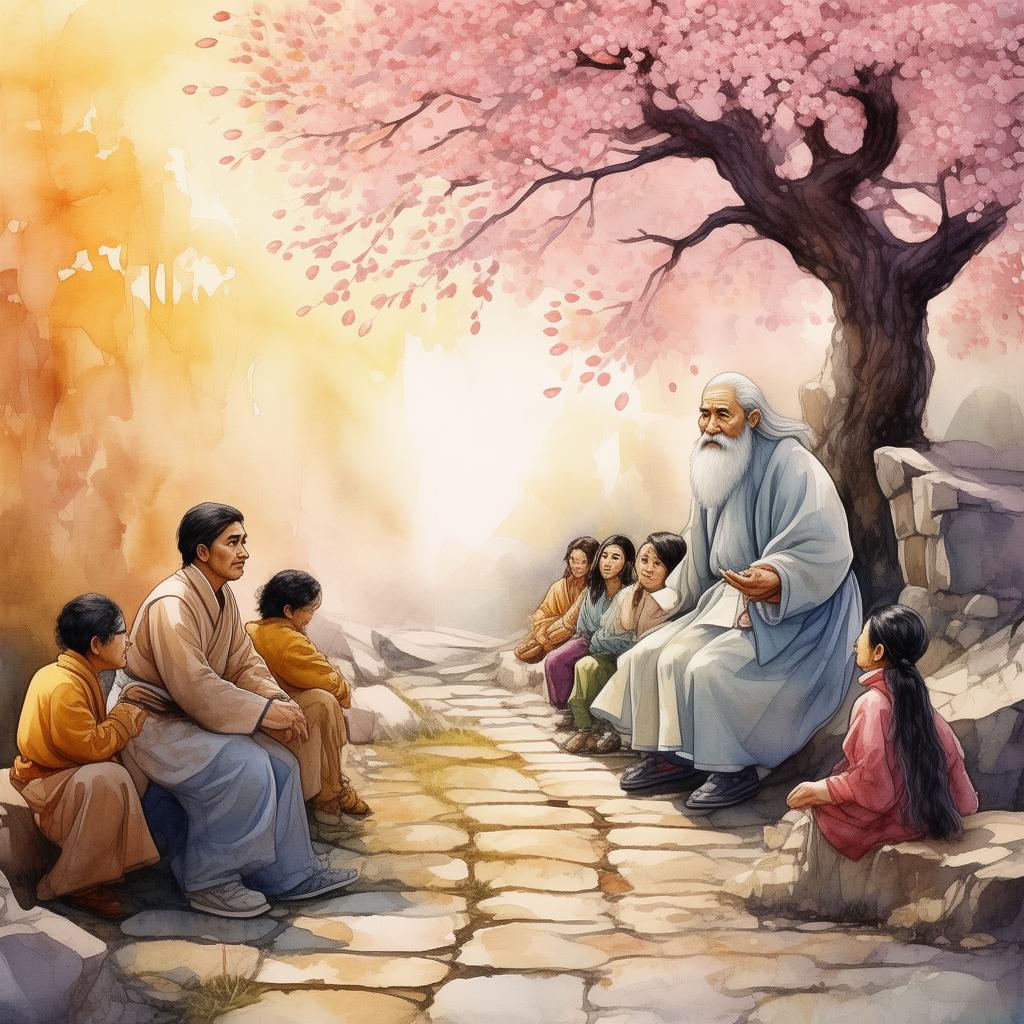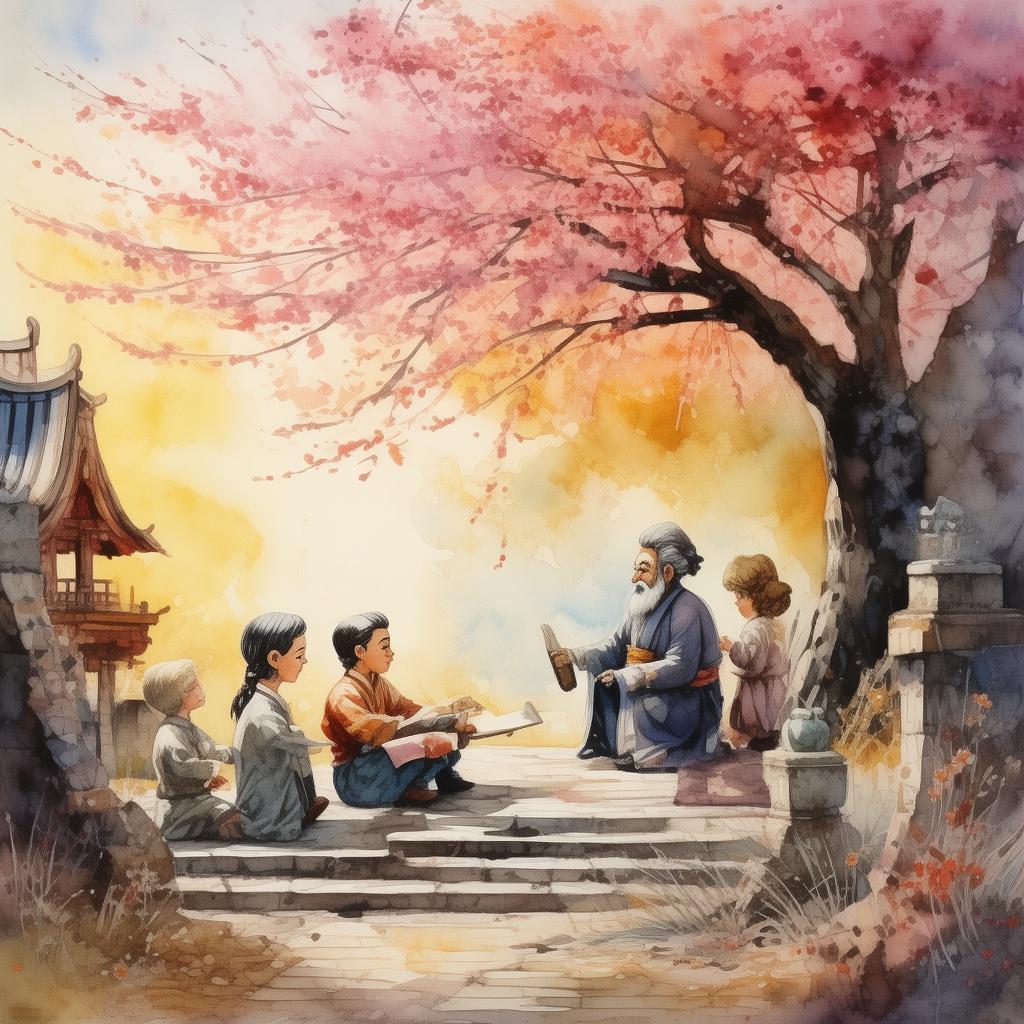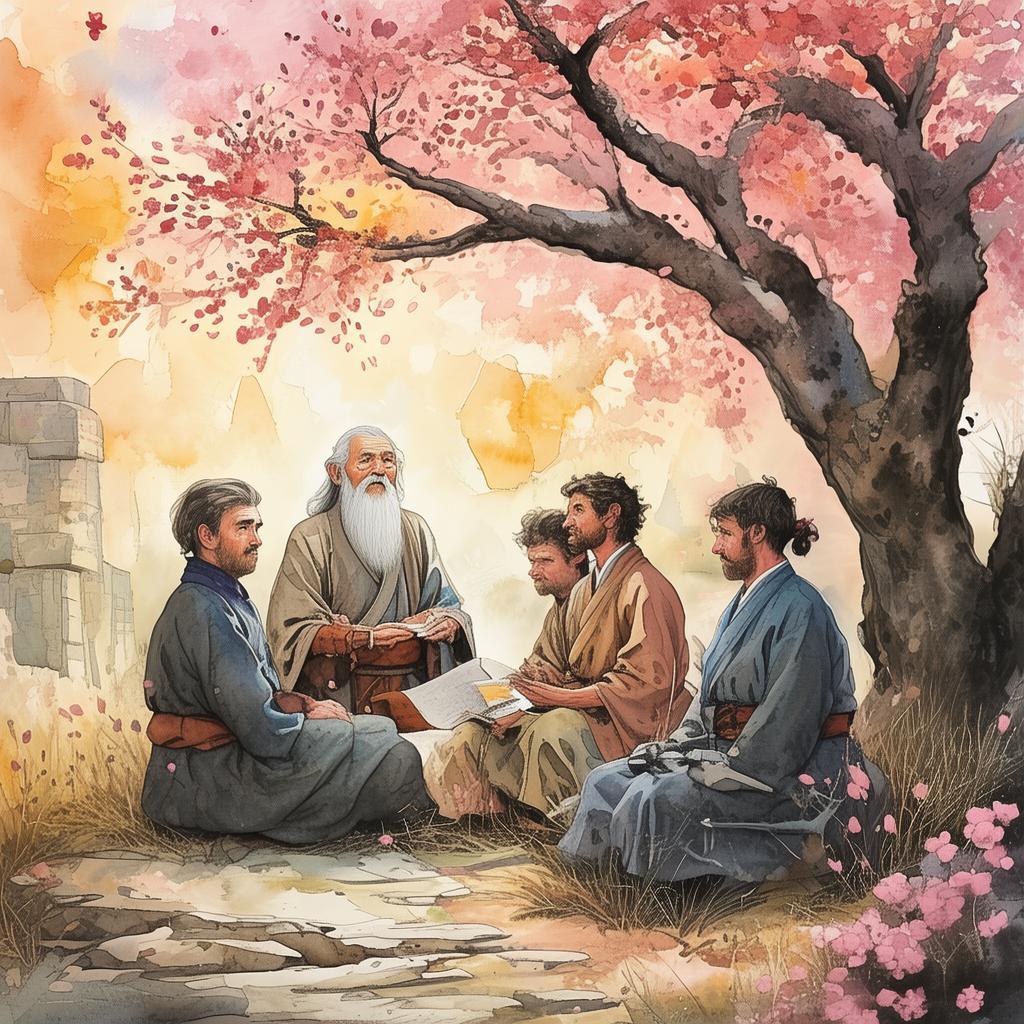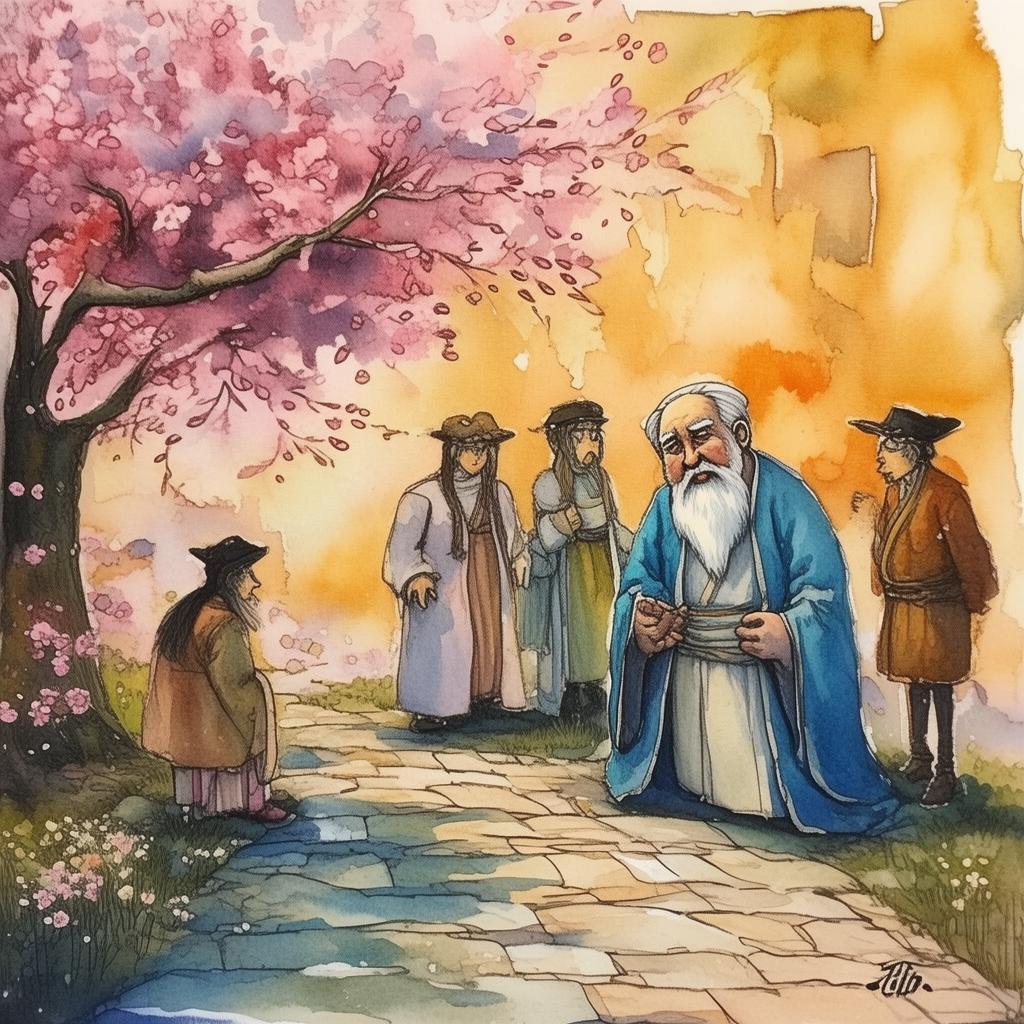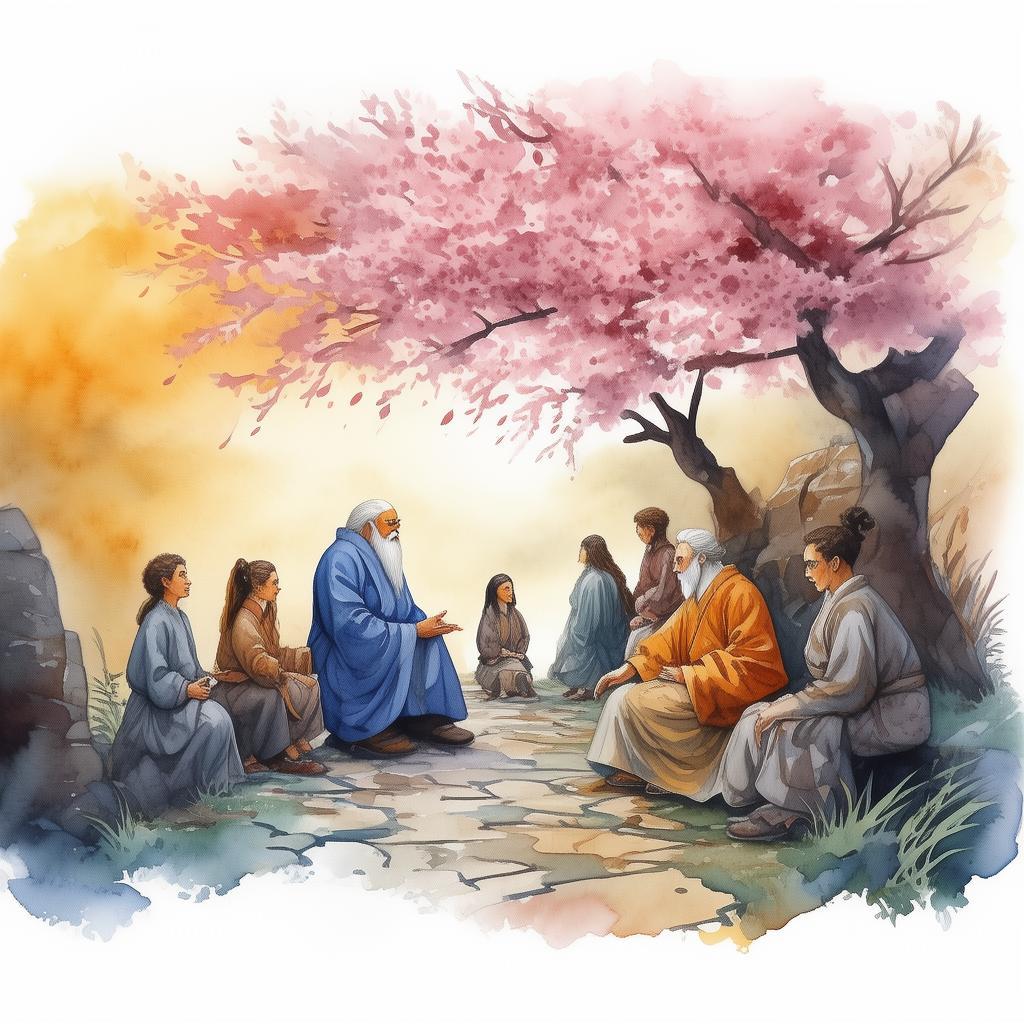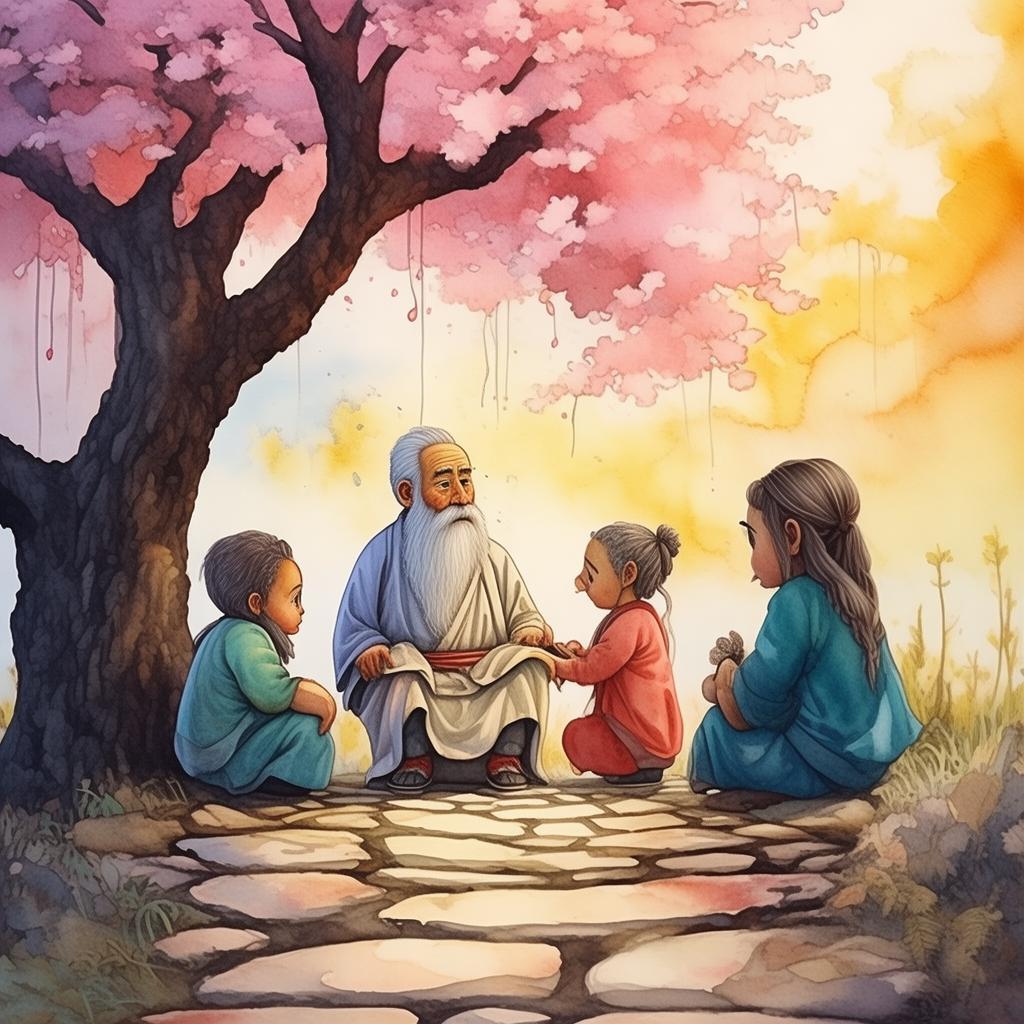Unraveling the Zen: The Monk's Dilemma
In the serene mountains of ancient China, nestled between towering pines and babbling brooks, there stood a small, unassuming temple. Its inhabitants, led by an elderly abbot known for his wisdom and gentle demeanor, practiced the ways of Zen, seeking to find inner peace in the tranquility of nature. Among the novices was Little Monk, a boy of twelve with eyes that seemed to have seen beyond their years.
One crisp autumn morning, as the sun peeked through the branches, casting dappled shadows on the temple's stone floor, Little Monk was deep in thought. He had spent countless hours tending to the temple garden, meticulously raking and weeding, cultivating the Zen garden as a way to connect with the natural world and the teachings of his mentors.
As he worked, his mind wandered to a story he had heard from the abbot, a tale of a Zen master who, upon hearing the sound of a frog's croak, understood the true nature of existence. Little Monk was captivated by the story, yearning to grasp the essence of such profound wisdom. But the more he thought about it, the more he realized that understanding the nature of existence was like trying to catch a shadow; it slipped through his fingers, leaving him empty and searching.
It was then that a thought struck him—a thought so audacious, so contrary to the serene life he led, that he could barely believe it himself. What if he were to test his own understanding of Zen? What if he were to create a situation that would force him to confront his beliefs?
Little Monk decided that evening to seek out the abbot. As he approached the old man, the abbot looked up from his meditative pose, his eyes soft and wise. Little Monk cleared his throat, feeling a nervous flutter in his chest.
"Abbot," he began, "I have a question about the frog's croak story. If you truly understand the nature of existence, then what happens if you hear a sound that contradicts your understanding?"
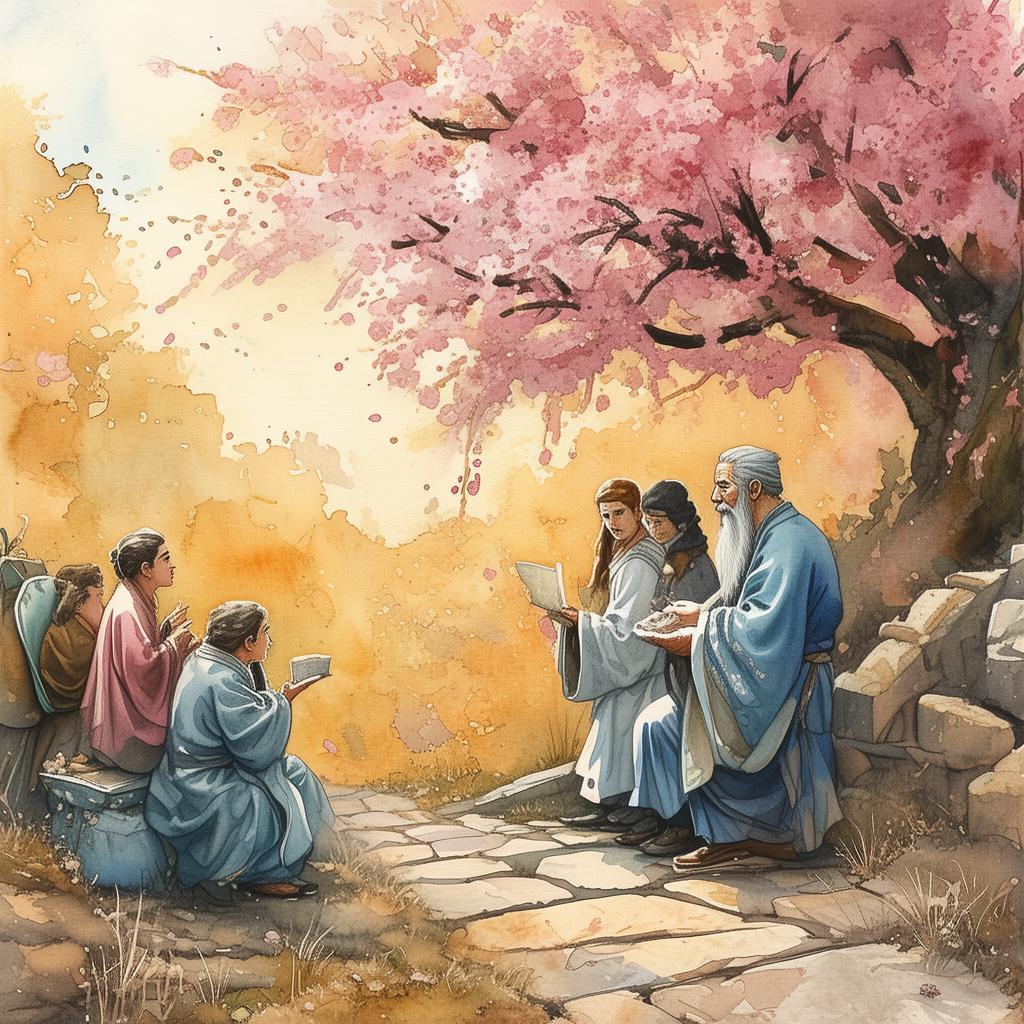
The abbot paused, considering the young monk's words. "That is an interesting question, Little Monk. Perhaps it is a test that you are setting for yourself. If you wish to understand the nature of existence, you must be willing to face contradiction."
The next morning, Little Monk set out on a quest. He ventured deep into the forest surrounding the temple, his mind filled with questions and the desire to find an answer. He stumbled upon a stream, its waters glistening in the sunlight. As he sat by the water, a frog hopped into view and began to croak.
Little Monk's heart raced. He had chosen the sound of a frog's croak because it was the most simple and direct contradiction to the Zen master's story. He had to face it, to confront it, to understand it.
As the frog croaked, Little Monk sat still, his mind racing with thoughts of his training, the abbot's words, and the nature of reality. He realized that the frog's croak was not a contradiction to the story but an extension of it. The Zen master had not said that he would never hear a sound that challenged his understanding; rather, he had said that understanding the nature of existence meant being able to embrace contradiction.
Little Monk's realization was profound. He saw that Zen was not about adhering to a set of beliefs but about embracing the uncertainty and the beauty of contradiction. He understood that the path to inner peace was not about finding the answers but about the journey of seeking them.
When he returned to the temple, he found the abbot waiting for him. The old man's eyes sparkled with a gentle smile as Little Monk related his experience.
"Abbot," Little Monk said, "I have learned that Zen is about facing contradiction, not avoiding it. I have learned that inner peace is not about having all the answers but about being at peace with the search."
The abbot nodded, his face alight with pride. "You have indeed grown, Little Monk. Remember that the path to Zen is a journey, not a destination. You have taken a great step forward."
From that day on, Little Monk's Zen garden became a place not only of tranquility but also of challenge and contradiction. He continued to tend to it, raking and weeding, always mindful of the lessons he had learned in the forest. And as he did so, he found a deeper sense of peace, a peace that came not from having all the answers but from embracing the questions.
✨ Original Statement ✨
All articles published on this website (including but not limited to text, images, videos, and other content) are original or authorized for reposting and are protected by relevant laws. Without the explicit written permission of this website, no individual or organization may copy, modify, repost, or use the content for commercial purposes.
If you need to quote or cooperate, please contact this site for authorization. We reserve the right to pursue legal responsibility for any unauthorized use.
Hereby declared.
